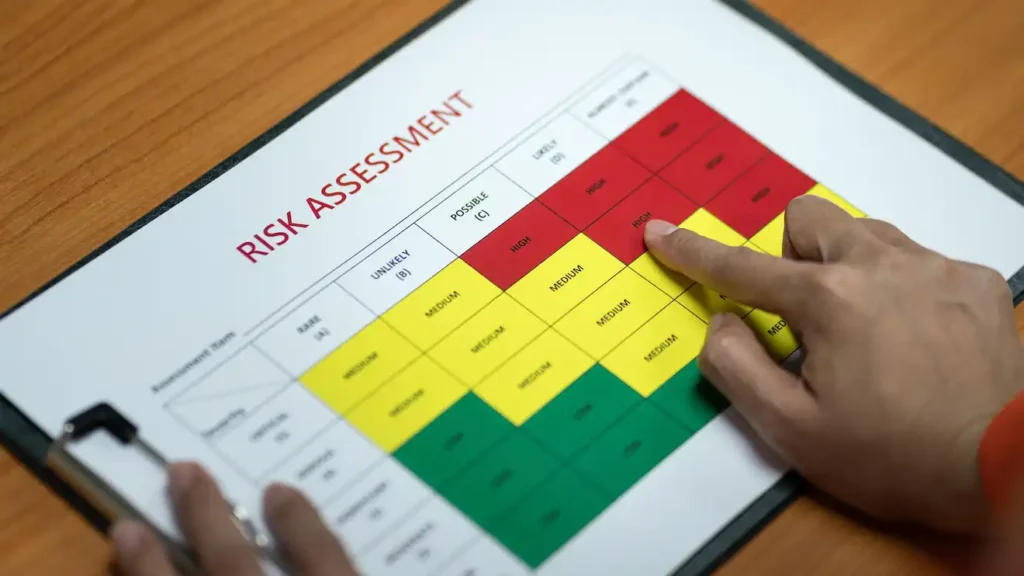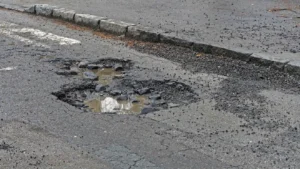In facilities and estate management, reactive maintenance is unavoidable. Things break, surfaces wear, and problems crop up without warning. But just because reactive work is unpredictable doesn’t mean your approach has to be. With the right structure in place, you can create a reactive works plan that is timely, controlled, and cost-efficient.
At OUTCO, we’ve helped thousands of sites across the UK minimise disruption and extend the life of their outdoor assets by taking a smarter, more systematic approach to reactive works. Here’s how.
What Is a Reactive Works Plan?
A reactive works plan outlines how your organisation will respond to unplanned maintenance issues, such as:
- Damaged fencing or signage
- Blocked or overflowing drains
- Cracked surfaces or potholes
- Faded line markings
- Debris build-up or spillages
- Tree damage or storm-related issues
A good plan prioritises response times, focuses on compliance, limits risk, and crucially doesn’t break the budget.
Why Predictability Matters
Without a clear plan, reactive maintenance can lead to spiralling costs, site safety issues, reputational damage, or even business interruption. Establishing a predictable approach means:
- Faster, more consistent response times
- Fewer surprises for stakeholders and tenants
- Better compliance and documentation
- Easier budgeting and cost control
- Peace of mind during seasonal surges or adverse weather
Key Steps to Building a Predictable Reactive Works Plan
1. Start with an External Condition Survey

OUTCO’s External Condition Survey is the first step to taking control. It provides a full overview of your outdoor assets, with:
- Photographic evidence
- RAG-rated assessments
- Site-by-site insights
- Identified compliance risks
- Maintenance prioritisation
Our survey teams act as your eyes and ears, helping to spot issues before they become liabilities.
2. Create an Issue Matrix and Response Protocol

To bring structure to your reactive works plan, categorise issues by urgency and assign target response times accordingly.
- High-priority issues such as trip hazards, blocked drains or flooding, should trigger an urgent response within 4 to 12 hours.
- Medium-priority problems, including broken fencing or signage faults, typically require attention within 24 to 48 hours.
- Lower-priority or cosmetic issues, such as minor surface damage, should still be logged and addressed, usually within 3 to 7 days.
This clear prioritisation framework helps align contractor SLAs with on-site needs and communicates to stakeholders so they understand how issues will be handled.
3. Use Technology to Track and Respond

With OUTCO’s Service Portal, clients gain full visibility into all reactive jobs from the moment they’re logged to the point they’re completed. Benefits include:
- Live job status (Scheduled, En Route, On Site, Completed)
- GPS breadcrumb tracking
- Photo evidence of completion
- Support ticketing for fast query resolution
- Mobile access for facilities teams on the move
Checklist: What to Look for During Outdoor Maintenance Surveys
Whether you’re conducting your own walkaround or working with a professional like OUTCO, here’s what to assess:
Surfaces & Paving
- Cracks, potholes or uneven surfaces
- Pooling water or blocked drainage
- Worn or missing line markings
Fencing & Boundaries
- Damaged or unstable fencing
- Access control issues
- Rust, rot or corrosion on metal fixtures
Signage
- Missing or obscured signage
- Safety or regulatory signs not visible
- Graffiti or damage
Drainage
- Overflowing gullies or blocked channels
- Debris build-up
- Standing water or flooding signs
Vegetation & Trees
- Overgrown plants obstructing access
- Trees with broken limbs or signs of disease
- Invasive weeds impacting surfaces or drains
Cleanliness & Safety
- Accumulated litter or waste
- Slippery surfaces or algae/moss
- Debris or spillages in high-footfall areas
Each of these issues can escalate quickly if left unaddressed, which is why we advocate a proactive eye and rapid, reliable response mechanisms.
How OUTCO Delivers Predictable Reactive Maintenance

At OUTCO, reactive doesn’t mean chaotic. Our reactive works are backed by a proven system that includes:
- Site surveys and digital condition reporting
- Prioritised job scheduling
- Experienced field teams with national reach
- Live updates via the OUTCO Service Portal
- 24/7 helpdesk
- Transparent documentation for compliance and audit
This approach has helped clients scale from ad-hoc reactive support to fully managed national partnerships.
Reactive works may be triggered by the unexpected, but your response shouldn’t be. By putting a structured plan in place, you’ll be better prepared, reduce risk, and save costs over time. OUTCO makes that process easier, safer, and smarter.
Ready to Get Started?
Speak to our team about scheduling an External Condition Survey to get your reactive works plan off the ground.








